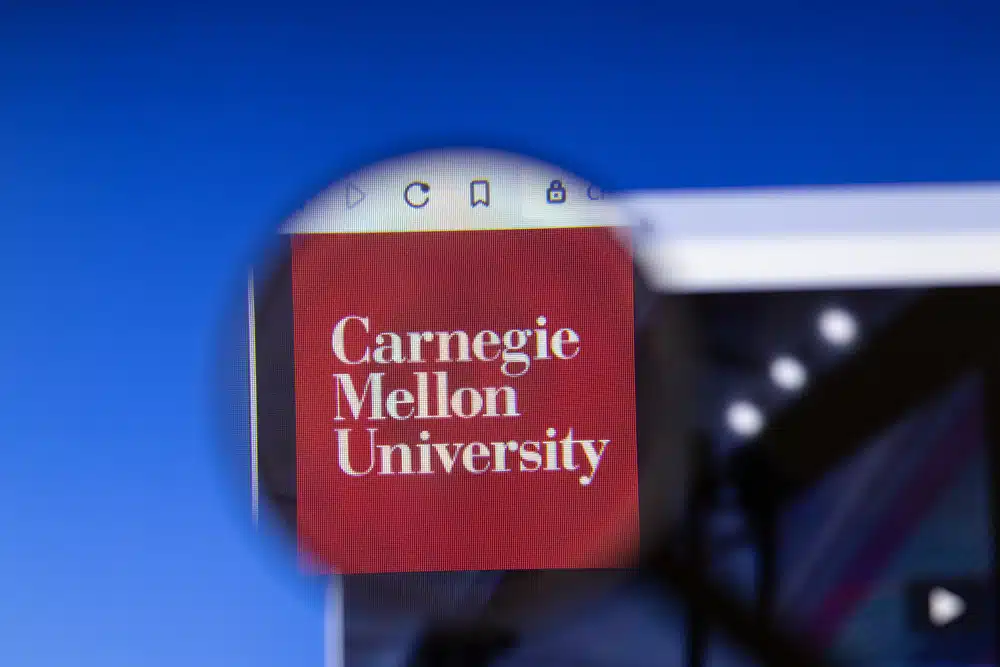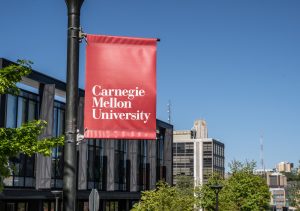Carnegie Mellon Supplemental Essays 2023-2024
Carnegie Mellon University, renowned for its innovative approach to education and a strong emphasis on research and technology, stands out as a leading institution of higher learning. In the realm of college admissions, the supplemental essays hold significant weight, serving as a window into the applicant’s personality, intellect, and potential contributions to the campus community.
For the 2023-2024 admissions cycle, Carnegie Mellon has crafted prompts that are both challenging and opportunity-rich, designed to elicit thoughtful and revealing responses from prospective students. At the heart of these supplemental essays are questions that probe into the candidates’ motivations, aspirations, and self-perceptions.
Carnegie Mellon’s prompts are notably open-ended compared to many other universities, offering a unique canvas for students to paint a vivid picture of their academic passions, personal journeys, and future ambitions. Understanding and responding effectively to these prompts is crucial for applicants wishing to stand out in a pool of highly qualified candidates.
Applying to Carnegie Mellon
Carnegie Mellon only accepts applications through the Common Application, and you need to submit your application online.
Make sure to check the application plans, deadlines, and admission requirements for Carnegie Mellon. If you’re applying to the Schools of Architecture, Art, Design, Drama, or Music, please also look at the College of Fine Arts applicant information.
Remember, Drama and Music applicants have a December 1 deadline for Regular Decision. When you apply, you’ll get an email within one to five business days from the Office of Admission confirming they’ve received your application. This email will help you track your application’s progress.
How Many Supplemental Essays Does Carnegie Mellon Have?
For the 2023-24 admissions cycle, Carnegie Mellon University requires applicants to complete three supplementary essay prompts. Each of these essays is limited to 300 words. These essays are an integral part of the application process, giving applicants the opportunity to showcase their individual strengths and aspirations in relation to what CMU offers.
What are the Carnegie Mellon Supplemental Essays 2023-2024?
Prompt #1
Most students choose their intended major or area of study based on a passion or inspiration that’s developed over time – what passion or inspiration led you to choose this area of study? (300 words)
Prompt #2
Many students pursue college for a specific degree, career opportunity or personal goal. Whichever it may be, learning will be critical to achieve your ultimate goal. As you think ahead to the process of learning during your college years, how will you define a successful college experience? (300 words)
Prompt #3
Consider your application as a whole. What do you personally want to emphasize about your application for the admission committee’s consideration? Highlight something that’s important to you or something you haven’t had a chance to share. Tell us, don’t show us (no websites please). (300 words)
Answering the 2023-2024 Carnegie Mellon Supplemental Essay Prompts
Prompt #1
Most students choose their intended major or area of study based on a passion or inspiration that’s developed over time – what passion or inspiration led you to choose this area of study?
This prompt is primarily about understanding the underlying motivations and inspirations that have led a student to choose their intended major or area of study. It seeks to explore the depth of the student’s interest in the subject and how this interest has evolved over time. The aim is to gauge not just the student’s commitment to the field but also to understand the personal journey and experiences that have shaped their academic choices.
Here are four key points for students to consider while brainstorming and answering this prompt, with detailed explanations for each:
1. Identify the Origin of Your Interest: Begin by reflecting on when and how your interest in the chosen field started. Was it a particular event, a class in school, a personal project, or an encounter with a work in this field that sparked your curiosity? Detailing this origin story gives the admissions committee a glimpse into your personal journey and helps them understand the sincerity and depth of your passion.
2. Describe Key Milestones and Experiences: Discuss specific experiences, projects, or challenges that furthered your interest in this field. This could include relevant classes, extracurricular activities, internships, personal projects, or even influential books or conversations. Describe how these experiences contributed to your growing interest and understanding of the subject. This shows the progression of your passion over time.
3. Connect Your Interest to Your Personal Values or Goals: Explain how your chosen field aligns with your personal values, life goals, or future aspirations. This connection demonstrates a deeper level of reflection and shows that your choice of study is not just a passing interest but is integral to who you are and who you want to become.
4. Reflect on What Makes Your Perspective Unique: Finally, consider what unique perspective or experiences you bring to this field. How does your background, culture, or personal experiences inform your approach to this area of study? This helps in showcasing your individuality and how your unique perspective can contribute to the diversity of thought in the university community.
Remember, the key to a compelling response is authenticity and specificity. It’s not just about stating an interest but illustrating it through your personal story and experiences.
Prompt #2
Many students pursue college for a specific degree, career opportunity or personal goal. Whichever it may be, learning will be critical to achieve your ultimate goal. As you think ahead to the process of learning during your college years, how will you define a successful college experience?
This Carnegie Mellon essay prompt is fundamentally about understanding and articulating personal goals and aspirations in the context of a college education. It invites students to reflect on what they consider a successful college experience, beyond just obtaining a degree. Here are four key points students should consider when answering this prompt:
1. Define Personal and Academic Goals: Students should start by clearly defining their personal and academic goals. This could involve specific skills they want to acquire, career paths they aspire to, or personal development they hope to achieve through their college education. For instance, a student interested in computer science might discuss aspirations to contribute to groundbreaking technology developments or the desire to acquire skills in both technical and leadership areas.
2. Emphasize the Importance of Learning: The prompt places a strong emphasis on learning as a critical component of college success. Students should reflect on how they approach learning – not just in academic terms, but as a lifelong process. They might discuss their enthusiasm for engaging with diverse ideas, their commitment to overcoming challenges in their studies, or how they plan to apply classroom knowledge to real-world problems.
3. Incorporate College Resources and Opportunities: It’s important to link personal goals with specific resources and opportunities offered by Carnegie Mellon. Students could mention unique programs, clubs, or research opportunities that align with their goals. For instance, if a student is interested in entrepreneurship, they could talk about how participating in Carnegie Mellon’s entrepreneurial ecosystem will contribute to their success.
4. Reflect on Personal Growth and Contributions to the Campus Community: Lastly, students should consider how they will grow as individuals and contribute to the campus community. This could involve discussing their desire to engage with diverse perspectives, contribute to campus organizations, or develop leadership skills through campus activities. The aim here is to show a holistic view of success that combines personal achievement with community involvement.
By covering these aspects, students can create a comprehensive and compelling response that showcases their ambitions, understanding of the learning process, and how they envision making the most of their college experience at Carnegie Mellon.
Prompt #3
Consider your application as a whole. What do you personally want to emphasize about your application for the admission committee’s consideration? Highlight something that’s important to you or something you haven’t had a chance to share. Tell us, don’t show us (no websites please).
This is an open-ended question that allows applicants to showcase unique aspects of their personalities, experiences, or qualifications that might not be evident in the rest of their application. This question is about giving students the opportunity to highlight a part of their story, identity, or achievements that they feel is significant and would contribute to their profile as a desirable candidate.
Here are four key points for brainstorming and detailed explanations for each:
1. Personal Growth or Challenges Overcome: Encourage students to reflect on a personal challenge or a significant growth experience. This could be overcoming a personal obstacle, dealing with a family situation, or a significant personal achievement. The key is to focus on how the experience shaped them, what they learned, and how it has prepared them for college. For example, overcoming a fear, dealing with the loss of a loved one, or managing a learning disability. This narrative should demonstrate resilience, maturity, and self-awareness.
2. Passion Projects or Extracurricular Involvements: Students can highlight a project or activity they are deeply passionate about but haven’t had the space to discuss in other parts of their application. This could be an independent research project, a community service initiative, a creative endeavor, or leadership in an extracurricular activity. The emphasis should be on the impact of this involvement, how it aligns with their academic and career goals, and what it reveals about their character. For example, starting a community clean-up program or developing an app to solve a local problem.
3. Unique Skills or Talents: If a student has a unique skill or talent that sets them apart, this prompt is a great place to discuss it. This could be anything from fluency in multiple languages, exceptional artistic abilities, or even unconventional skills like coding or robotics. The idea is to showcase how these skills have been developed and used in meaningful ways. For example, using multilingual skills to bridge communication gaps in their community or applying artistic talents in local events.
4. Cultural or Family Background: Students can use this prompt to highlight aspects of their cultural or family background that have significantly influenced their perspectives and aspirations. This can include traditions, values, or experiences unique to their family or community. It’s important to focus on how this background has shaped their worldview, contributed to their educational goals, and prepared them to contribute to a diverse college community. For example, growing up in a multicultural household or engaging in cultural community events.
In answering this prompt, students should aim to be authentic, reflective, and specific, connecting their chosen topic back to their overall candidacy and potential contributions to Carnegie Mellon’s community.
Structuring Your Supplemental Essays
The structure of supplemental essays is crucial in conveying an applicant’s message effectively and making a memorable impression. For the Carnegie Mellon supplemental essays for the 2023-2024 admissions cycle, a well-structured essay can make the difference between an application that stands out and one that gets lost in the pile. Here are three key points on how applicants can structure their Carnegie Mellon supplemental essays:
1. Introduction: Begin the essay with a compelling narrative or anecdote that directly relates to the prompt. This not only engages the reader but also sets a personal tone for the essay. For instance, if a student is writing about a challenge they’ve overcome, they might start with a vivid description of a moment that epitomizes that challenge. This approach not only grabs attention but also immediately immerses the admissions committee in the student’s world. It’s essential that this narrative seamlessly leads into the main theme of the essay, providing a natural flow into the subsequent sections.
2. Thematic Body Sections: After the engaging start, the body of the essay should be organized into clear, thematic sections. Each section should focus on a specific aspect of the topic, providing depth and detail. For instance, in a Carnegie Mellon supplemental essay, one section could delve into how the applicant’s experiences have shaped their academic interests, another could discuss skills or qualities they’ve developed, and a third could explore how these elements align with the opportunities at Carnegie Mellon. Using clear, thematic sections helps maintain a focused and coherent narrative, making it easier for the admissions committee to follow and appreciate the student’s story and aspirations.
3. Reflective and Forward-Looking Conclusion: The conclusion should not only summarize the key points discussed but also reflect on what the student has learned and how it prepares them for a future at Carnegie Mellon. This section should tie back to the introduction, creating a full-circle effect that leaves a lasting impression. For example, the conclusion could revisit the initial narrative and reflect on how the student’s journey has prepared them for the unique challenges and opportunities that Carnegie Mellon offers. It’s also an opportunity to explicitly state why Carnegie Mellon is the right fit for them, based on the specific programs, culture, or opportunities the university provides.
In structuring their Carnegie Mellon supplemental essays for the 2023-2024 cycle, applicants should ensure that their essays are not only well-organized and coherent but also showcase their personality, experiences, and fit for the university. A well-structured essay will flow logically, keep the reader engaged, and effectively communicate the student’s unique story and aspirations.
How to Effectively Revise and Proofread
Effectively revising and proofreading essays is a critical step in crafting a compelling and error-free application. For students applying to Carnegie Mellon for the 2023-2024 cycle, ensuring that their supplemental essays are polished and impactful is especially important. Here are four detailed strategies for revising and proofreading Carnegie Mellon supplemental essays:
1. Layered Review Approach: Break down the revision process into multiple layers. The first layer should focus on content and structure. Does the essay answer the prompt fully? Is there a clear and logical flow of ideas? The second layer should examine the style and voice. Is the essay reflective of the student’s personality? Does it maintain a balance between formality and personal expression? The final layer should be about language and clarity. Are there any complex or unclear sentences that could be simplified for better understanding? This approach ensures that each aspect of the essay is thoroughly reviewed.
2. Feedback from Multiple Sources: Obtain feedback from various individuals such as teachers, peers, or family members. Each person will bring a different perspective. For instance, a teacher might provide insights on the academic soundness of the essay, while peers might focus on how relatable and genuine the essay feels. When collecting feedback, specifically ask reviewers to look for different aspects: content accuracy, emotional impact, and language use. This varied input can be invaluable in enhancing the overall quality of the Carnegie Mellon supplemental essays.
3. Focused Proofreading Sessions: Instead of trying to catch every error in one go, conduct multiple, focused proofreading sessions. In each session, concentrate on one specific type of error: first spelling, then grammar, then punctuation, and finally, formatting. This methodical approach reduces the cognitive load and increases the likelihood of catching more errors. Tools like Grammarly or Readable can be used to assist in this process, but they should not replace human judgment.
4. Temporal Distance: After writing the essay, take a break from it for a few days before revising. Approaching the essay with fresh eyes can make a significant difference in identifying areas that need improvement. When the student returns to their essay, they are more likely to notice awkward phrasing, repetitive information, or off-topic content. This temporal distance helps in achieving a more objective and critical review of their own work.
For applicants to Carnegie Mellon’s 2023-2024 cycle, these strategies in revising and proofreading can greatly enhance the quality of their supplemental essays. It’s not just about fixing errors but refining the essay to ensure it best represents the student’s abilities, experiences, and fit for Carnegie Mellon.
Why Choose Carnegie Mellon?
Carnegie Mellon University is a place where education and research come together in exciting ways. It’s not just a university; it’s a hub of innovation and creativity. Let’s dive into what makes Carnegie Mellon so special:
1. Outstanding Global and National Rankings: Carnegie Mellon isn’t just another university; it’s a top-ranked institution both in the United States and around the world. According to the QS World University Rankings for 2023, it stands proudly at number 52 globally. The Times Higher Education World University Rankings of 2023 places it even higher, at 28th worldwide and 19th among U.S. colleges. Additionally, the U.S. News & World Report’s 2022-2023 Best Colleges Rankings lists it as the 22nd-best National University in the U.S. These rankings highlight the university’s excellence and global recognition.
2. Strength in Programs and Innovation: When it comes to specific subjects, Carnegie Mellon shines even brighter. It’s a leader in computer science, and ranked as the top university for undergraduate studies in this field. Innovation is another area where it excels, ranking third among the most innovative universities. The university also boasts strong programs in undergraduate business, engineering, business analytics, and management information systems, making it a powerhouse in various academic disciplines.
3. A Leader in Research: Carnegie Mellon is not just about learning from books; it’s about creating new knowledge. It’s recognized for its outstanding research, ranking high in research reputation. In fact, it’s among the top in the world in 16 different research areas, making it a great place for students who are keen on exploring and discovering new things.
4. Diversity and Inclusivity: With about 14,000 undergraduate students from various corners of the globe, Carnegie Mellon is a melting pot of cultures and ideas. This diverse student body creates a rich, multicultural learning environment where students can learn as much from each other as they do from their courses.
5. Interdisciplinary Approach: One of the unique things about Carnegie Mellon is how it encourages students to blend and merge different fields of study. This interdisciplinary approach means students get a well-rounded education, preparing them for the complex, interconnected world we live in.
6. Vibrant Campus Life: Situated in Pittsburgh, Carnegie Mellon’s campus is a unique mix of city vibes and suburban tranquility. It’s not just a place to study; it’s a community where students can live, learn, and grow in an environment that is both stimulating and supportive.
Overall, Carnegie Mellon University offers a dynamic, top-quality education marked by excellent program rankings, a commitment to innovation, abundant research opportunities, and a diverse, interdisciplinary community. It’s an institution where students are challenged, inspired, and prepared for successful futures in a variety of fields.
How Important are Supplemental Essays in the College Admissions Process?
Supplemental essays are a crucial element in the college admissions process, especially for renowned institutions like Carnegie Mellon. For the 2023-2024 admissions cycle, the role of these essays cannot be overemphasized. They serve as a unique platform for applicants to add personalization to their applications, going beyond the quantitative data of transcripts and test scores. These essays allow students to share their unique stories, experiences, and aspirations, offering a vivid portrait of their personality and potential. For example, a student might use their essay to detail a particular project or experience that sparked their interest in a field of study at Carnegie Mellon, providing a compelling narrative that distinguishes their application.
Moreover, supplemental essays enable students to demonstrate their specific interest in Carnegie Mellon, showcasing how they align with the university’s culture, values, and academic programs. Thoughtful and well-researched responses to essay prompts can convincingly illustrate a student’s understanding of what makes Carnegie Mellon unique and why they are a perfect fit for it. For instance, an applicant might articulate how the university’s interdisciplinary approach resonates with their own learning style and career aspirations.
The essays also provide an opportunity for students to showcase their writing skills and critical thinking abilities. Carnegie Mellon highly values these skills, as they are indicative of a student’s readiness for the academic rigors they will encounter. The way an essay is constructed—how ideas are presented, the clarity of arguments, and the overall writing style—offers the admissions committee valuable insights into an applicant’s intellectual capabilities and potential contributions to campus dialogues.
Lastly, supplemental essays can be strategically used by students to address any potential weaknesses in their applications or to further underscore strengths and unique achievements. For some, it’s a chance to explain how personal challenges have prepared them for college life, while for others, it’s an opportunity to expand on significant accomplishments or projects that highlight their potential as a future Carnegie Mellon student.
In essence, the Carnegie Mellon supplemental essays for the 2023-2024 admissions cycle are a critical component of the application. They offer students the chance to present a well-rounded and authentic picture of themselves, making a persuasive case for why they are an ideal match for the university. Far from being mere formalities, these essays can significantly impact the chances of admission, allowing applicants to stand out in a highly competitive applicant pool.
How Do Carnegie Mellon’s Supplemental Essays Compare to Others?
Carnegie Mellon’s supplemental essays for the 2023-2024 admissions cycle have distinct characteristics that set them apart from those of other top universities. While many elite institutions use supplemental essays to gain deeper insights into applicants beyond their grades and test scores, Carnegie Mellon’s prompts tend to emphasize practical creativity and intellectual curiosity, reflecting the university’s strong focus on innovation and interdisciplinary study.
For instance, unlike the broad and reflective prompts often seen in Ivy League schools like Harvard or Yale, where students are encouraged to delve into personal life philosophies or intellectual experiences, Carnegie Mellon’s prompts are more targeted. They often ask students to discuss specific aspects of their academic interests, career goals, or personal projects. This approach mirrors the university’s pragmatic and forward-thinking ethos, evident in its renowned programs in technology, science, and the arts.
Similarly, while Stanford University is known for its creative and sometimes unconventional essay questions that challenge students to think outside the box, Carnegie Mellon’s supplemental essays are more straightforward, aligning with the university’s emphasis on clarity of thought and purpose. This difference can be attributed to Carnegie Mellon’s unique blend of artistic creativity and technological innovation, which demands a certain level of directness and practicality in thinking.
Moreover, compared to schools like the University of Chicago, known for its intellectually rigorous and often quirky essay prompts, Carnegie Mellon’s essays tend to be more grounded and closely tied to the applicant’s specific interests and experiences, especially in relation to their intended field of study. This focus reflects the university’s commitment to preparing students for real-world challenges and its expectation that applicants demonstrate a clear vision for how they intend to utilize their education.
In essence, while other top universities might use their essays to probe into the philosophical and abstract thinking of their applicants, the Carnegie Mellon supplemental essays for the 2023-2024 cycle are more reflective of the university’s practical and interdisciplinary approach.
They ask students to clearly articulate their passions, how these align with what Carnegie Mellon offers, and how they foresee their experiences at the university shaping their future. This distinction underscores Carnegie Mellon’s unique position in higher education as an institution deeply rooted in practical innovation and interdisciplinary collaboration.
Conclusion
The supplemental essays for Carnegie Mellon University’s 2023-2024 admissions cycle offer a unique opportunity for applicants to showcase their individuality, intellectual curiosity, and alignment with the university’s ethos. These prompts, while challenging, provide a platform for students to narrate their academic and personal journeys, articulate their future aspirations, and highlight unique aspects of their experiences and perspectives.
Applicants should approach these essays with introspection, creativity, and authenticity, ensuring that each response adds depth and dimension to their overall application. The goal is to present a compelling, coherent narrative that resonates with the admissions committee, demonstrating not only the applicant’s suitability for Carnegie Mellon but also their potential to contribute meaningfully to the university community.
With thoughtful preparation and attention to detail, these essays can be a decisive factor in the admissions process, turning aspirations of attending Carnegie Mellon into reality.
AdmissionSight, a college consulting firm, offers personalized assistance to students in their college admissions journey. We help you create a strategic plan for your application process, identify suitable schools aligned with your academic and personal goals, and prioritize your application strategy.
Our experts review your application, providing constructive feedback to enhance its quality and uniqueness. We also assist in crafting compelling essays that reflect your personality and achievements, guide you through the writing process, and offer feedback on drafts. In addition, we provide interview coaching to boost your confidence and readiness for college interviews, offering tips on professional presentation and answering common questions.
We aid in optimizing your extracurricular activities to align with your interests and goals, emphasizing leadership and initiative. Overall, AdmissionSight offers valuable guidance and support to increase your chances of college acceptance. With a strong network and a success rate exceeding 75% in the past decade, book a free initial consultation today!










































